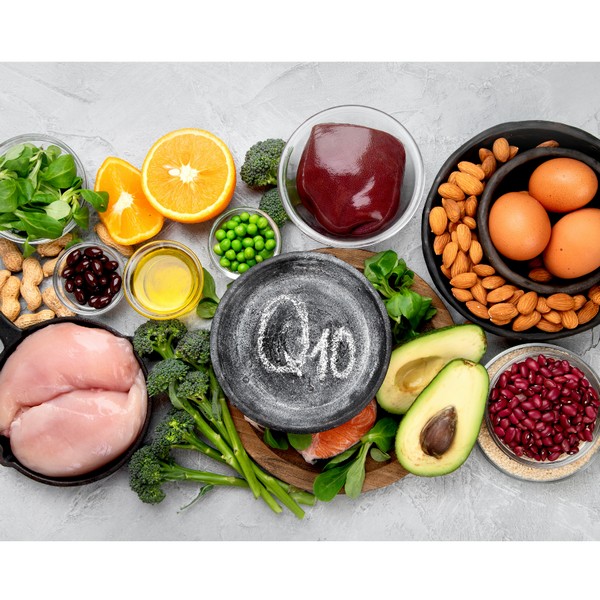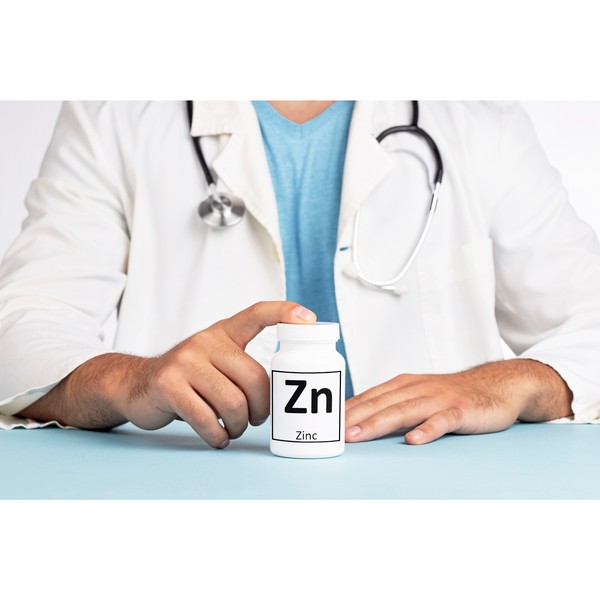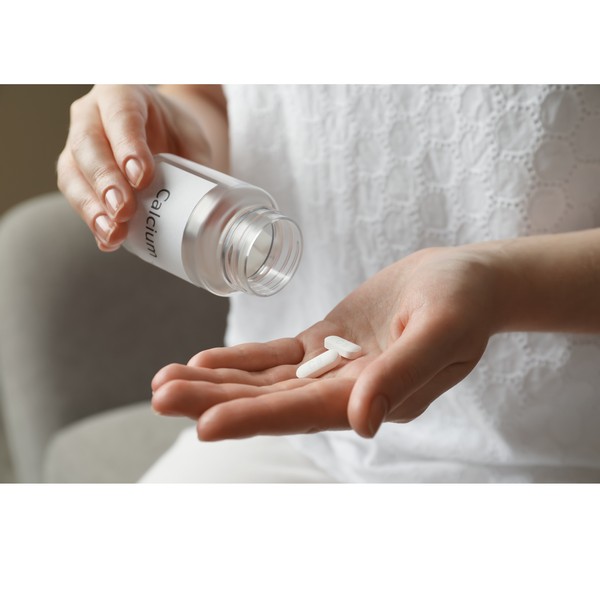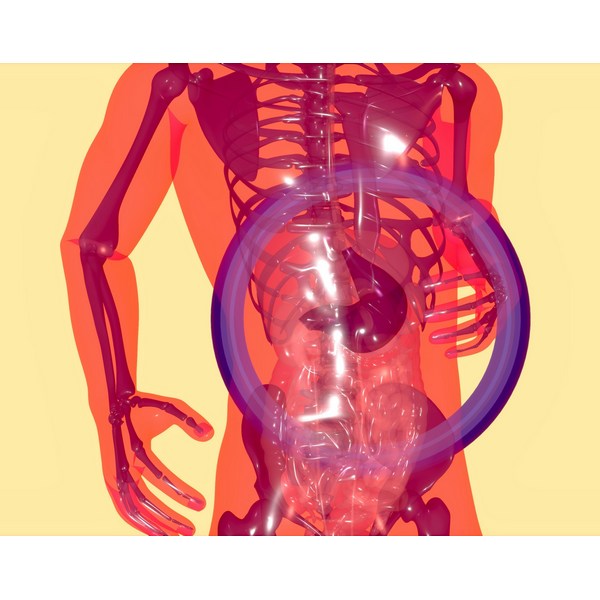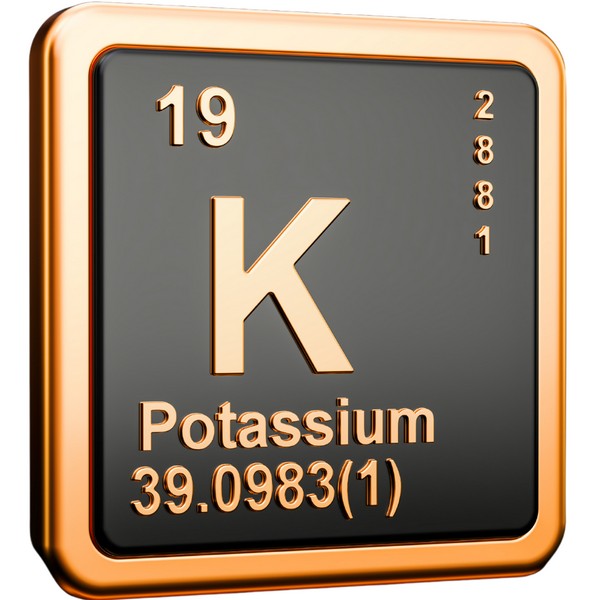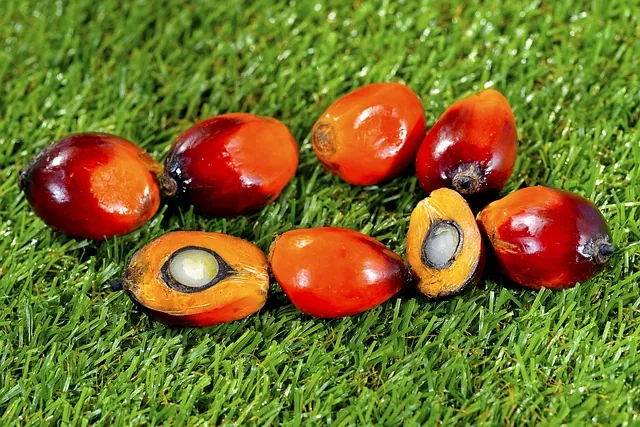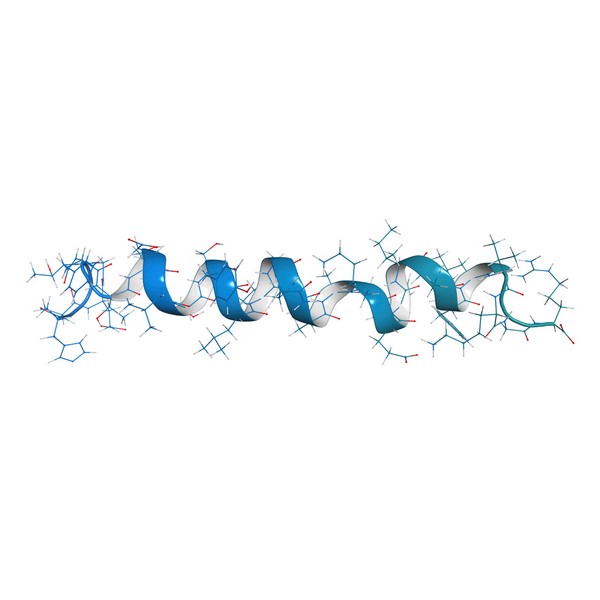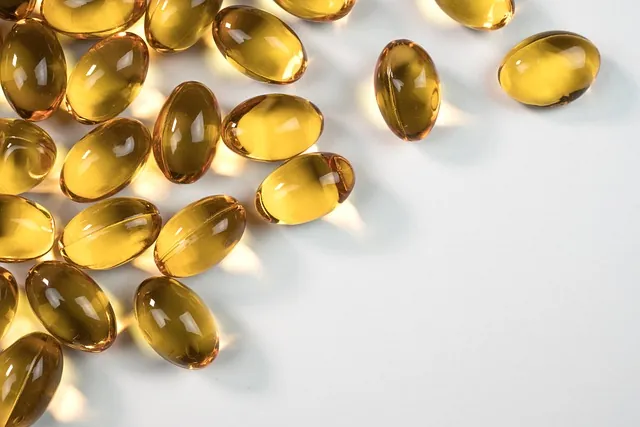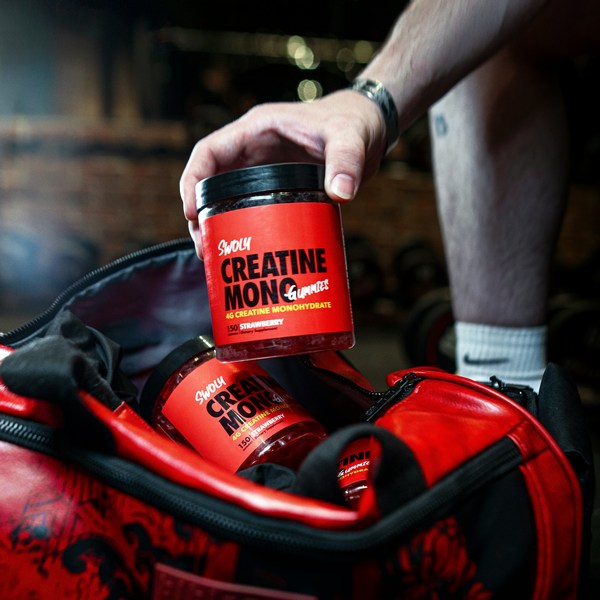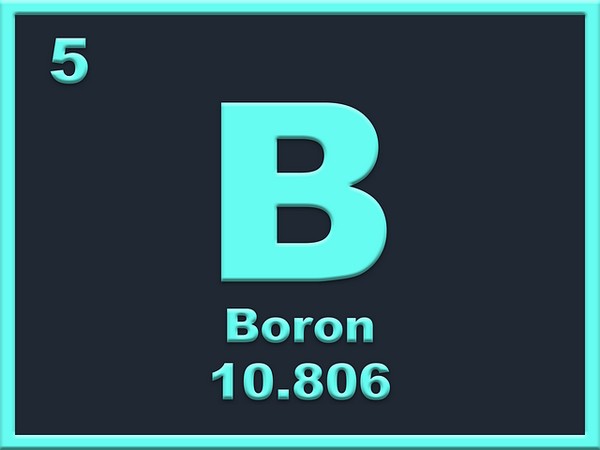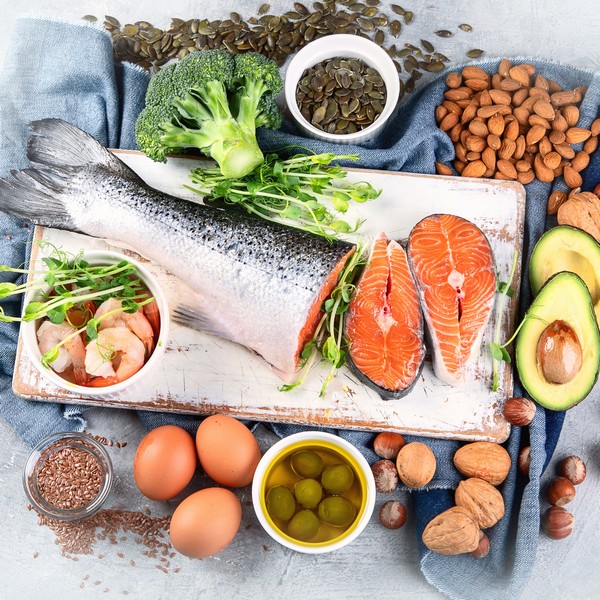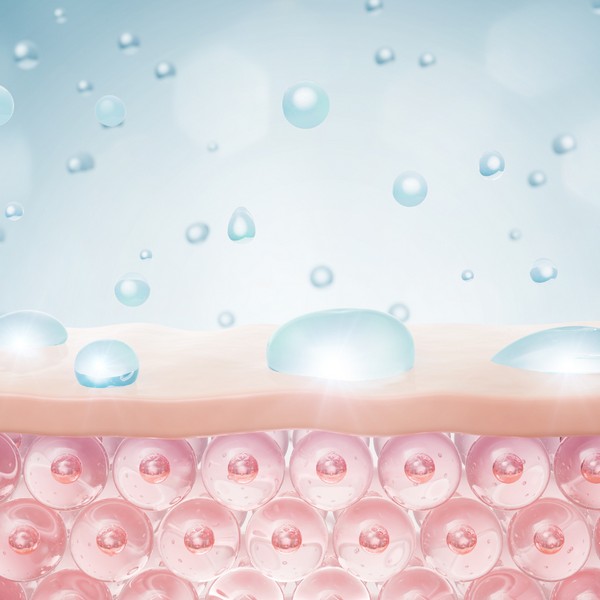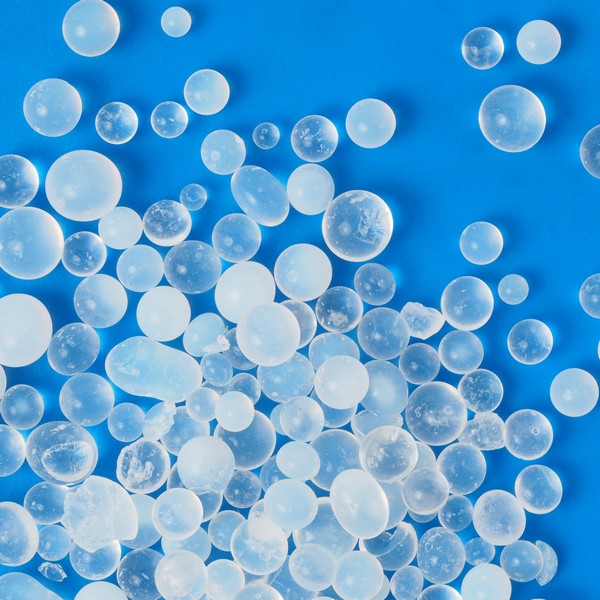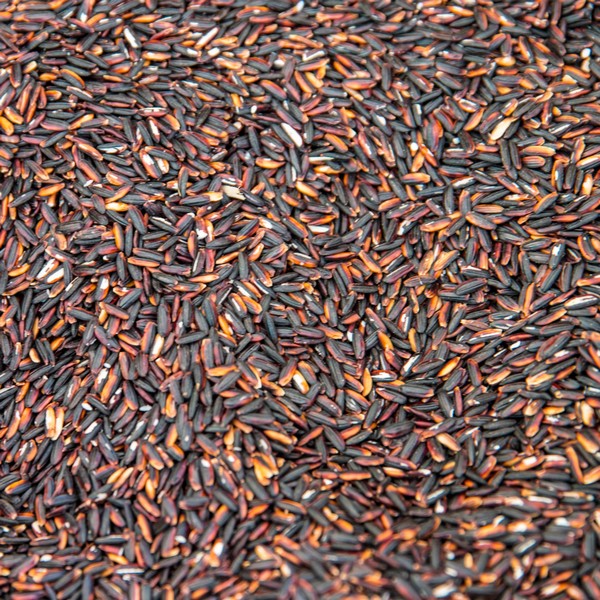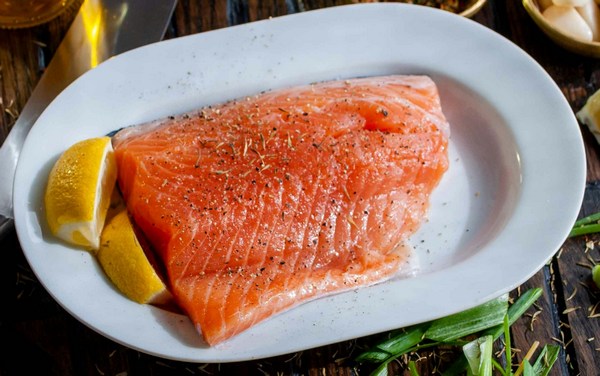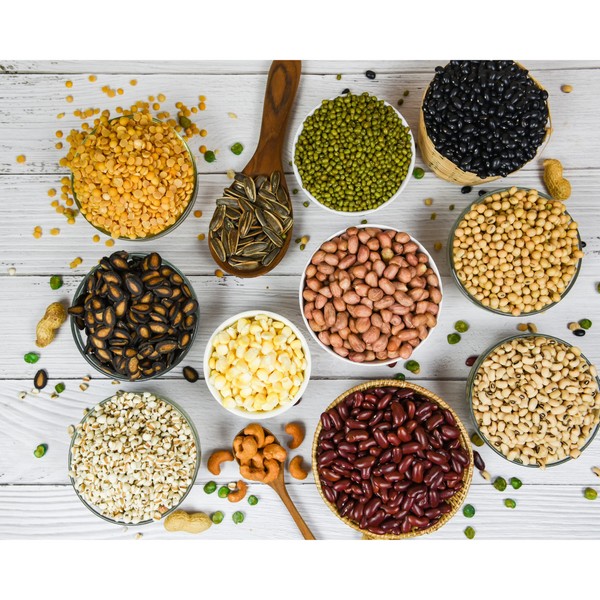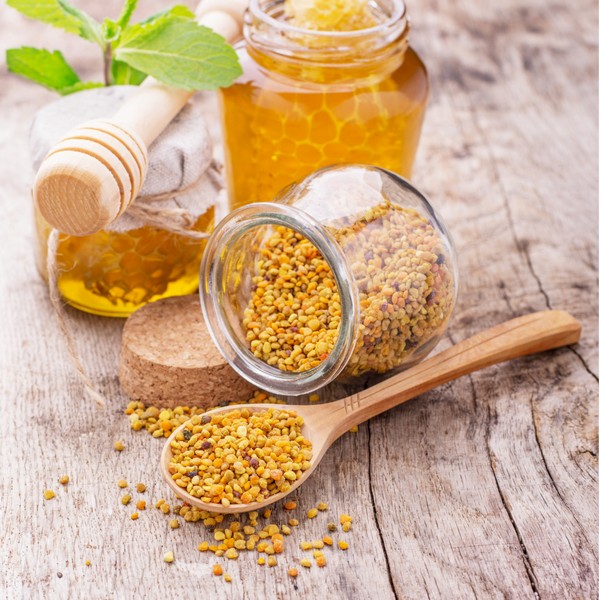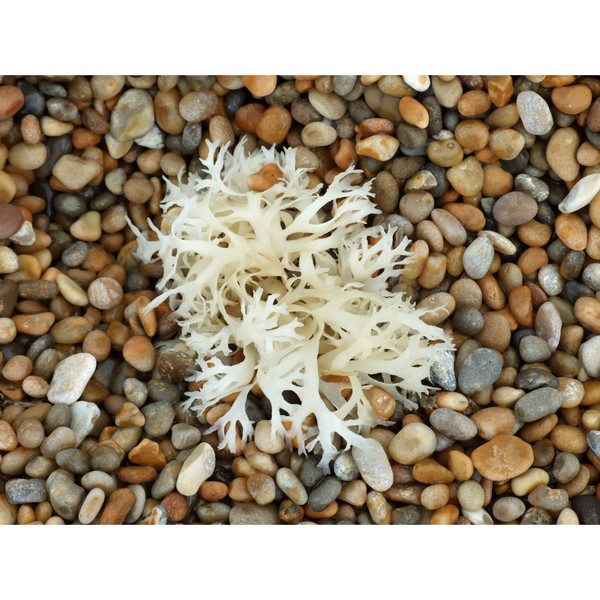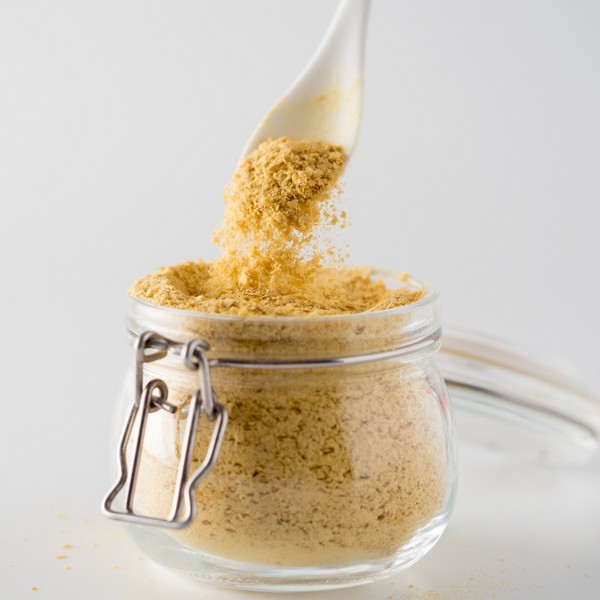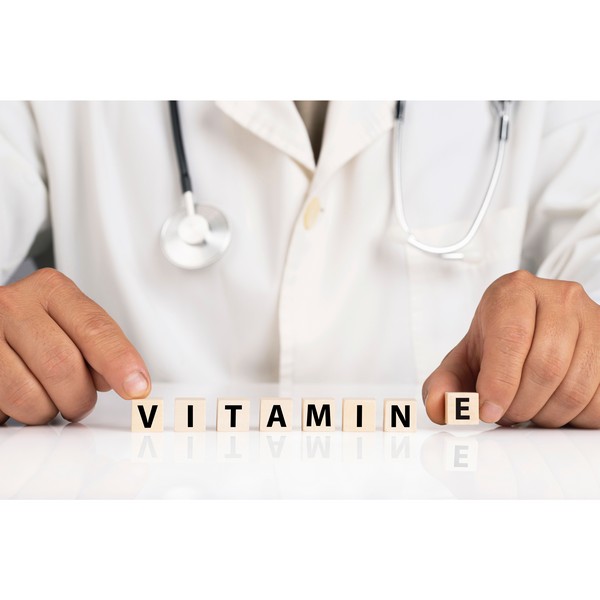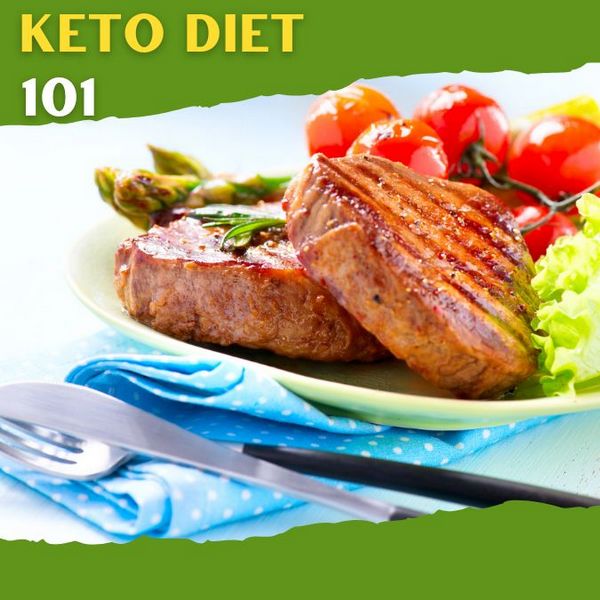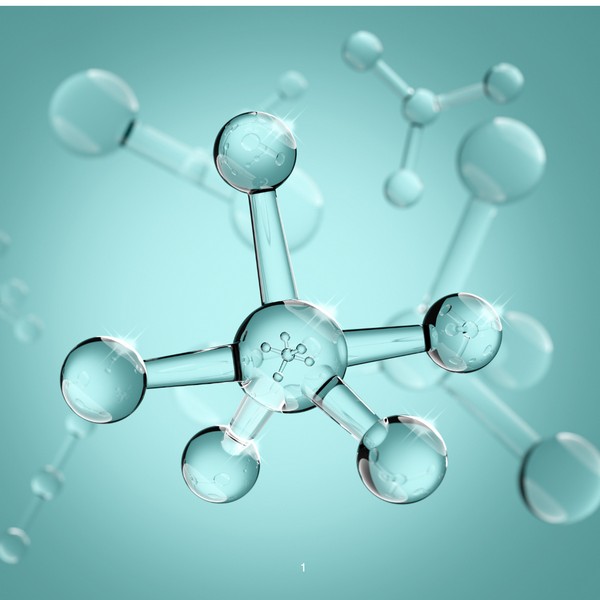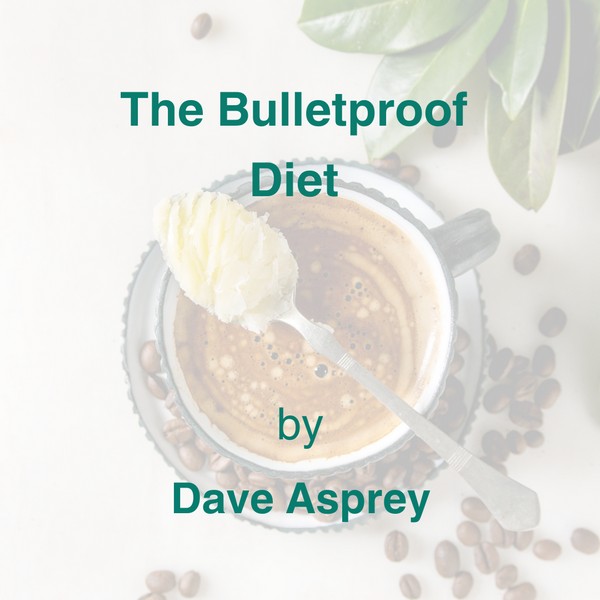Berberine is a compound found in several plants that has been used for centuries in traditional Chinese medicine and Ayurveda. It has recently gained popularity due to its potential benefits on cardiovascular health, diabetes management, weight loss, and more.
Table of Contents
Health Benefits of Berberine
Berberine can provide a wealth of health benefits, such as improved blood sugar control, cholesterol-lowering effects, depression relief, anti-inflammatory and antioxidant properties, better heart health, digestive wellness promotion and even aid in weight management.
Blood sugar control
Berberine is a natural and incredibly powerful compound found in plants such as barberry, goldenseal, Oregon grape root, and tree turmeric.
It has the potential to effectively control blood sugar levels in individuals with type 2 diabetes and pre-diabetes by regulating insulin production as well as other hormones related to glucose metabolism.
It can also reduce overall glucose concentrations in both diabetics and non-diabetics because of its effect on suppressing enzymes that cause your body to convert protein and fat into glucose.
Besides positively impacting glucose response, berberine has been shown to improve the production of adiponectin — an essential hormone used for regulating fat — helping stimulate blood sugar lowering and uptake into skeletal muscles while fighting obesity.

Blood pressure regulation
Berberine is an active compound found in many medicinal plants. It has been found to offer various health benefits, including helping reduce blood pressure levels.
Studies suggest berberine can help lower both systolic and diastolic blood pressure by having direct vasodilatory effects on the cardiovascular system, as well as by increasing nitric oxide production and inhibiting the enzyme angiotensin-converting enzyme (ACE).
Not only this, but berberine also appears to be effective when used alongside pharmacologic drugs for hypertension management.
In addition, some research suggests that berberine may play therapeutic roles in arrhythmia and heart failure when taken with other agents.
If you suffer from higher than normal blood pressure levels, then it’s worthwhile considering adding a supplement of Berberine into your daily routine — especially where prescription medicines don’t seem effective or have intolerable side effects.
Cholesterol reduction
Berberine is a naturally occurring chemical from plants that has been proven to reduce cholesterol levels in the body. Numerous studies have confirmed its positive effects on heart health, as berberine can decrease LDL (bad) cholesterol and increase HDL (good) cholesterol levels.
In addition, it has been found to lower total and triglyceride levels in individuals with high cholesterol.
Berberine works by blocking several enzymes involved in lipid synthesis, keeping them from converting glucose into fat molecules and lipoproteins like LDL.
This effectively reduces blood concentrations of those fats that could lead to unhealthy cardiovascular conditions over time.
It also increases bile acid production, which helps break down dietary fatty acids more efficiently, while reducing chylomicron formation — a type of particle that is made after consuming fat-rich foods is linked to a higher risk for coronary artery atherosclerosis if present at too great a level.
Depression relief

Berberine has demonstrated potential for relieving symptoms of depression and anxiety. Animal studies have suggested that berberine could be used as a natural remedy for these mental health conditions.
Additionally, its anti-inflammatory and antioxidant properties may help reduce inflammation-induced depression.
Berberine’s role in heart health, sleep, gut health, and antibody production makes it an ideal supplement to combat depressive symptoms.
Studies have also found that berberine can lower insulin levels, which is important in managing stress levels often associated with depression or anxiety.
Moreover, it can act on ‘bad’ cholesterol resulting in improved neurological functioning which will further benefit mental illnesses like depression and anxiety.
Anti-inflammatory and antioxidant effects
Berberine has been found to have beneficial anti-inflammatory and antioxidant activities, which are important for its efficacy in managing diabetes mellitus.
It helps reduce inflammation that causes symptoms like pain and swelling while also protecting cells from oxidative stress and damage caused by free radicals.
This can support improved blood glucose control by helping regulate insulin levels in people with type 2 diabetes. Recent studies show that berberine may help promote weight loss through multiple pathways, such as reducing fat accumulation, decreasing appetite, modulating hormones related to hunger control, and reducing energy absorption from food.
In addition, it may help improve cardiovascular health by lowering protein levels closely associated with heart disease.
Regular intake of this compound can help reduce inflammation linked to various conditions affecting the heart’s functioning, such as stroke or high cholesterol levels.
Heart health improvement

Berberine has been found to positively affect heart health, helping reduce the risk of cardiovascular disease and improve overall function.
Studies indicate that berberine can lower levels of what is referred to as “bad” cholesterol in the body, as well as reduce inflammation in endothelial cells that line blood vessels.
In addition, by increasing insulin sensitivity, it can help regulate irregular heartbeats. Berberine has also been shown to increase nutrient absorption in those with artery hardening and abdominal fat, thus promoting healthier arteries and reducing the risk of stroke or heart attack.
Its anti-inflammatory properties make it an ideal supplement option for naturally improving your cardiovascular system’s functioning without medications.
Taking berberine regularly may help prevent further damage from occurring when issues related to heart health arise, such as high blood pressure or clogged arteries, due to its sealing ability against lipid plaques building up inside vessel walls while safeguarding its flexibility at the same time.
Digestive wellness promotion
Berberine is a naturally-occurring compound found in several herb plants used historically for its digestive health benefits. Studies suggest it may help promote gut health and digestion and reduce gastrointestinal issues such as dyspepsia and diarrhea.
Berberine contains anti-inflammatory properties that can soothe inflammation in the gut lining and improve beneficial bacteria levels to support optimal digestion and nutrient absorption.
Additionally, research indicates that berberine can potentially inhibit the growth of harmful bacteria like E. Coli, helping to prevent infection or an upset stomach due to food poisoning.
Finally, studies have shown that berberine could help protect against leaky gut syndrome by strengthening tight junctions between cells in the intestinal wall — decreasing their permeability and preventing toxins from passing through into the bloodstream.
Berberine could regulate the structure and function of the human gut microbiota, and Bifidobacterium has the potential to enhance the hypoglycemic effect of berberine. These findings provide new insights into the hypoglycemic potential of berberine and Bifidobacterium.
Research by Ming, J., Yu, X., Xu, X. et al. 2021
Sleep improvement
Berberine, a natural supplement, is linked to numerous health benefits like sleep improvement. It influences hormones that regulate steroid production and help sort out issues related to impaired circadian rhythms or erratic sleeping patterns.
Studies have demonstrated berberine’s potential as an effective natural aid for conditions such as insomnia and other sleep problems associated with menopause and stress.
Berberine has been found to increase melatonin levels in the body, which helps improve overall quality and duration of sleep.
Alongside improving cognitive performance, these effects can also positively influence mood and reduce feelings of depression since better rest equates to more energy during waking hours.
Furthermore, taking advantage of its anti-inflammatory activity could also lead to additional restful moments since chronic inflammation often prevents human beings from getting deep slumber cycles while impairing hormonal regulation systems related directly to nighttime rest and recovery.
Weight Management Support

Berberine is known to be a powerful supplement in promoting weight loss and maintaining overall health. It works by stimulating insulin receptors, improving blood glucose levels, and reducing insulin resistance — all of which contribute to successful weight management.
The primary mechanism through which berberine may help manage weight is by regulating the hormones involved in fat metabolism.
Additionally, berberine aids digestion and can improve muscle strength as well as body composition.
For those looking for ways to safely lose or maintain weight while keeping their heart healthy, taking regular doses of berberine supplements may be helpful.
In addition to controlling blood sugar levels, it has been found that berberine can lower total cholesterol, so-called “bad” LDL cholesterol (low-density lipoprotein), and triglycerides — increasing cardiovascular safety while supporting better long-term health outcomes without relying on medications or dietary strategies alone.
This should not be confused with conventional weight loss drugs. Additionally, while berberine may provide some support for fat loss, there is no miracle quick-fix hack for healthy weight management.
Canker sore treatment
Berberine may be an effective remedy for canker sore treatment. Studies have found that its direct application to the sores themselves can reduce pain, redness, and size of the ulcers.
Berberine also has anti-inflammatory and antioxidant properties which make it a useful natural remedy for soothing inflammation in the mouth.
It is thought that berberine could be helpful in treating irritation due to discomfort from canker sores. One study even found that berberine could ease the symptoms associated with aphthous stomatitis — commonly known as canker sores.
Taking berberine orally or using it as a topical ointment are both options when considering this natural treatment option for mouth ulcers.
Reduced cancer risk
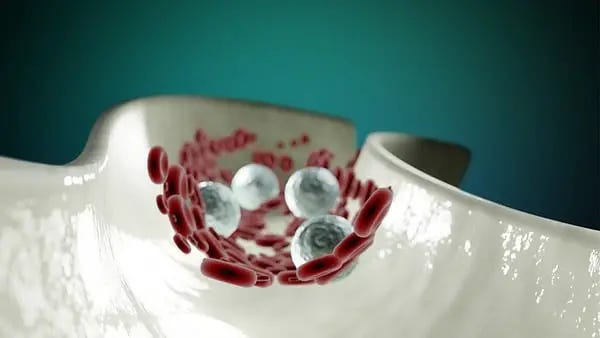
Berberine, a natural supplement derived from plants like the Berberis vulgaris shrub, has been shown to offer numerous health benefits. Some of these include its potential ability to reduce cancer risk.
Several animal and human studies have suggested that berberine can act as an anti-inflammatory and antioxidant which can help protect against cell damage that could result in cancer cells forming.
Additionally, it is thought to be able to prevent tumor growth by reducing oxidative stress and increasing apoptosis (programmed cell death).
It also appears to stop the growth of existing tumors or restrict their spread by inhibiting angiogenesis (the formation of new blood vessels).
How to Take Berberine
Berberine is available in many health food and supplement stores. It also comes in capsule, tablet, powder, tincture, or extract forms for easy consumption.
Recommended dosages range from 200 mg to 1500mg per day. In the case of higher doses, it is often evenly divided into three doses that are each taken with a meal.
Potential Side Effects of Berberine
Berberine has the potential to produce side effects in some individuals, such as;
- Diarrhea
- Constipation
- Gas
- Upset stomach
Because Berberine has effects on the body similar to medication, it could alter how medication affects you. The effects of medication may increase or remain in your system for longer than intended.
Taking berberine along with diabetes medications may cause blood sugar levels to drop too low. It is recommended to monitor your blood sugar levels regularly if the two medications are taken together.
Those with allergies to plants in the Berberis family, including golden seal, barberry, or Oregon grape should not take berberine without first consulting a health care professional.
Conclusion
Berberine is a remarkable natural compound that has powerful health benefits. It has been shown to help regulate blood sugar levels, reduce bad cholesterol levels, and improve heart health. Berberine can also support weight loss goals and potentially lower the risk of cancer. It even helps improve sleep quality and digestion and supports anti-aging effects.
The medicinal properties of berberine make it an incredibly beneficial supplement for overall wellness and support in managing many chronic illnesses like diabetes and cardiovascular disease. With its amazing potential as a natural remedy for various ailments, berberine should definitely be something you consider adding to your daily routine!
It is important to consult your healthcare professional before beginning any course of action or supplementing your diet with any product containing berberine from medicinal herbs like Jinhua Snakegourd Root (Tusizi) or Coptis Chinensis (Huanglian). This is particularly true if pregnant or on any form of medication.
FAQs
1. What is berberine?
Berberine is a plant extract from the Berberis family of plants, which includes barberry, Oregon grape, and goldenseal. It has been used for centuries in traditional Chinese medicine as a natural remedy for digestive issues, infections, and inflammatory disorders.
2. How can I use Berberine?
Berberine is available in both capsule and powder form and can be taken orally or applied topically to the skin. Some people prefer to take it in food or drink forms such as tea or smoothie bowls while others mix it into recipes like marinades or dressings.
3. What are some of the potential health benefits of taking berberine?
Studies have shown that berberine could help improve heart health by lowering triglyceride levels, promote weight loss because of its ability to reduce caloric intake levels from fat consumption; defend against certain diseases such as diabetes or cancer; benefit hormone balance; support liver function; maintain oral health because of its anti-inflammatory properties; lower blood pressure; aid digestion through helping with constipation relief & more!
Research Lan, J., Zhao, Y., Dong, F., Yan, Z., Zheng, W., Fan, J. and Sun, G., 2015. Meta-analysis of the effect and safety of berberine in the treatment of type 2 diabetes mellitus, hyperlipemia and hypertension. Journal of ethnopharmacology, 161, pp.69-81 https://doi.org/10.1016/j.jep.2014.09.049 Xia, L.M. and Luo, M.H., 2015. Study progress of berberine for treating cardiovascular disease. Chronic Diseases and Translational Medicine, 1(04), pp.231-235. https://mednexus.org/doi/pdf/10.1016/j.cdtm.2015.11.006 Ming, J. et al. (2021). Effectiveness and safety of Bifidobacterium and berberine in human hyperglycemia and their regulatory effect on the gut microbiota: a multi-center, double-blind, randomized, parallel-controlled study. Genome Medicine, 13 (1), Springer Science and Business Media LLC. [Online]. Available at: https://doi.org/10.1186/s13073-021-00942-7 Ko, W.H., Yao, X.Q., Lau, C.W., Law, W.I., Chen, Z.Y., Kwok, W., Ho, K. and Huang, Y., 2000. Vasorelaxant and antiproliferative effects of berberine. European journal of pharmacology, 399(2-3), pp.187-196. https://doi.org/10.1016/j.fct.2010.01.033 Sheila A Doggrell (2005) Berberine – a novel approach to cholesterol lowering, Expert Opinion on Investigational Drugs, 14:5, 683-685, https://doi.org/10.1517/13543784.14.5.683 Imenshahidi, M. and Hosseinzadeh, H., 2019. Berberine and barberry (Berberis vulgaris): a clinical review. Phytotherapy Research, 33(3), pp.504-523. https://onlinelibrary.wiley.com/doi/abs/10.1002/ptr.6252 Pierpaoli, E., Cirioni, O., Simonetti, O., Orlando, F., Giacometti, A., Lombardi, P. and Provinciali, M., 2020. Potential application of berberine in the treatment of Escherichia coli sepsis. Natural Product Research. https://doi.org/10.1080/14786419.2020.1721729 Shinjyo, N., Parkinson, J., Bell, J., Katsuno, T. and Bligh, A., 2020. Berberine for prevention of dementia associated with diabetes and its comorbidities: A systematic review. Journal of integrative medicine, 18(2), pp.125-151. https://doi.org/10.1016/j.joim.2020.01.004 Fan, J., Zhang, K., Jin, Y., Li, B., Gao, S., Zhu, J. and Cui, R., 2019. Pharmacological effects of berberine on mood disorders. Journal of cellular and molecular medicine, 23(1), pp.21-28. https://onlinelibrary.wiley.com/doi/pdfdirect/10.1111/jcmm.13930 Behl, T., Singh, S., Sharma, N., Zahoor, I., Albarrati, A., Albratty, M., Meraya, A.M., Najmi, A. and Bungau, S., 2022. Expatiating the pharmacological and nanotechnological aspects of the alkaloidal drug berberine: current and future trends. Molecules, 27(12), p.3705. https://www.mdpi.com/1420-3049/27/12/3705/pdf Kwon, S. and Chan, A.T., 2020. Extracting the benefits of berberine for colorectal cancer. The Lancet Gastroenterology & Hepatology, 5(3), pp.231-233. https://doi.org/10.1016/s2468-1253(19)30430-3 Wang, Y. and Zidichouski, J.A., 2018. Update on the benefits and mechanisms of action of the bioactive vegetal alkaloid berberine on lipid metabolism and homeostasis. Cholesterol, 2018. https://downloads.hindawi.com/archive/2018/7173920.pdf Caliceti, C., Rizzo, P. and Cicero, A.F.G., 2015. Potential benefits of berberine in the management of perimenopausal syndrome. Oxidative Medicine and Cellular Longevity, 2015. https://www.hindawi.com/journals/omcl/2015/723093/
Is Eating Sugar Really That Bad For Your Health?
Should You Really Be Concerned? In short, YES! Thank you, that’s all folks, and do have a good evening. Seriously though, extensive research has established…
CoQ10: What Is It and Why Is It Important?
Key Takeaways CoQ10 (Coenzyme Q10) is an antioxidant produced by the body, essential for energy production in cells. Levels of CoQ10 naturally decrease with age…
8 Key Signs of Nutrient Deficiency
Taurine: The Mighty Amino Acid for Optimal Health
Key Takeaways Taurine supports heart health, regulates blood pressure, and reduces oxidative stress. Essential for muscle function, brain health, and cognitive function. Aids in insulin…
Magnesium: Better Sleep, Stress Relief and More
The Impact of Ultra-Processed Foods on Your Wellbeing
Every bite we take is a step toward either wellness or illness. In our fast-paced world, ultra-processed foods have become a staple, silently shaping our…
Actual Superfoods: Real Foods You Should Be Eating
Key Takeaways Superfoods are nutrient-dense foods, offering essential vitamins, minerals, and fats. Prioritize high-quality sources for optimal nutrition. They support overall health, boost energy, and…
Spirulina: Health Benefits and Uses
Key Takeaways Spirulina boosts immune function with its high nutrient content and antioxidant properties. Rich in proteins and essential vitamins, enhances overall nutrition. Helps reduce…
11 Electrifying Health Benefits of Trace Minerals
What are Trace Minerals?The Major Roles of Trace MineralsSources of Trace MineralsDeficiencies in Trace MineralsThe Impact of Trace Minerals on Specific Health ConditionsFrequently Asked Questions…
Zinc Supplements: Risks and Dangers
Key Takeaways Zinc supports immunity, wound healing, and cell growth. High zinc supplement doses can cause health problems. Always consult a healthcare provider before taking…
Calcium Supplements: What You Need to Know
Key Takeaways Calcium supplements have been linked to heart disease and kidney stones. Excess calcium from supplements can lead to imbalances and health issues. Natural…
TUDCA Benefits for Health
Key Takeaways TUDCA promotes liver health, aiding cell protection and repair. Enhances digestion by improving bile flow and supporting gut health. May protect brain health…
L-Glutamine and Gut Health: Benefits and Side Effects
Key Takeaways L-Glutamine is essential for gut health. Benefits include improved digestion and reduced inflammation. Potential side effects are rare but can occur in high…
Potassium: Benefits & Sources
Key Takeaways Potassium is essential for regulating fluid balance, nerve signals, and muscle function. It supports heart health and helps maintain proper blood pressure. Adequate…
Red Palm Oil: Unveiling The Potent Health Benefits
Struggling to find the right oil for your health and kitchen? Red palm oil is packed with nutrients that might just be what you need….
Vitamin A (Retinol): Essential Nutrient for Health
Key Takeaways: Natural Vitamin A, also known as Retinol, is crucial for vision, immune function, and skin health. Retinol is essential for healthy vision, particularly…
Increase GLP-1 Agonists Naturally
Key Takeaways: GLP-1 agonists regulate appetite, insulin production, and blood sugar levels. Regular exercise and quality sleep maintain optimal GLP-1 levels. High-protein, low-carb diets effectively…
How Cod Liver Oil Can Transform Your Health and Wellness
Cod liver oil has been used for centuries as a natural remedy for various health conditions. Packed with essential nutrients and fatty acids, cod liver…
Creatine Myths Debunked: Separating Fact from Fiction
Key Takeaways Common myths about creatine, such as it causing kidney damage, weight gain, and being a steroid, are widespread but unsupported by scientific evidence….
Boron: Benefits of a Lesser-Known Mineral
Key Takeaways Boron is a trace mineral with significant health benefits. It supports brain function, bone health, and hormonal balance. Understanding boron’s role can improve…
ALA vs. DHA & EPA Omega-3: Why Source Matters
Key Takeaways ALA (Alpha-Linolenic Acid) is found in flaxseeds, chia seeds, and walnuts, but converts poorly to DHA and EPA. DHA and EPA are critical…
Do This! The Ultimate Guide to Fasting Safely and Effectively
In our increasingly busy lives, finding time to take care of our bodies can often take a backseat. One method that has gained attention recently…
L-Carnitine: Benefits, Dosage, and Side Effects
Key Takeaways L-Carnitine supports fat metabolism and energy production. Benefits include enhanced exercise performance and improved heart health. Proper dosing minimizes potential side effects. Understanding…
How Collagen Supports Healthy Skin, Joints, and More
Key Takeaways Collagen is the most abundant protein in the body, supporting the structure of skin, bones, and connective tissues. It helps maintain skin elasticity,…
Iron Overload: Symptoms & Prevention Tips
Key Takeaways: Iron overload happens when the body absorbs excessive iron, which can damage organs. Common symptoms include fatigue, joint pain, and skin changes. Early…
Cholesterol Misconceptions: Separating Fact from Fiction
Key Takeaways: High inflammation and blood pressure are major risk factors for heart disease. Cholesterol is vital for hormone production, cell membrane structure, and digestion,…
5-HTP: Natural Ways to Boost Serotonin and Improve Mood
Key Takeaways: 5-HTP is a natural compound that helps boost serotonin levels in the brain. It can support mood regulation, sleep improvement, and stress reduction….
Postbiotics: What They Are and Why They Are Important
Key Takeaways Postbiotics 101: They’re beneficial by-products from probiotics that consume prebiotics Boosts Immunity: Postbiotics sharpen your immune system, helping fight off pathogens and reducing…
Silica: for Healthier Skin, Hair, and Nails
Key Takeaways: Silica supports strong and healthy skin, hair, and nails. It promotes bone health by boosting collagen production. Silica helps improve joint flexibility and…
What You Need to Know About Salt and Your Health
Table of ContentsThe Health Benefits of Unrefined Sea SaltElectrolyte BalanceMineral ContentImproved HydrationBoosted Energy LevelsImmune SupportImproved DigestionBalanced pH LevelsReduced Water RetentionHeart Health SupportStronger Bones and TeethEnhanced…
Natural Treatment for Irritable Bowel Syndrome (IBS): Effective Remedies Explored
Understanding IBSSymptoms of IBSRole of Diet in IBSNatural Remedies for IBSSupplements for IBSRole of Probiotics in IBSFrequently Asked Questions Understanding IBS Irritable Bowel Syndrome (IBS)…
Medium Chain Triglycerides (MCTs): Uncovering 5 Health Benefits
This potent, natural source of energy has gained considerable attention in recent years for its impressive array of benefits. MCT oil is a versatile addition…
Copper: Little-Known Health Benefits
Key Takeaways Copper is an essential trace mineral with benefits, including ceruloplasmin production, energy production and antioxidant properties. Copper is critical for brain health by…
6 Best Natural Ways to Manage Your Blood Sugar: A Quick & Easy Guide
1. Intermittent fasting2. Exercise3. Dietary fiber4. Sleep5. Weight loss6. SupplementationBioclinic NaturalsPGX BiotiquestSugar Shift Every time you eat it, it’s plotting something sinister. Sugar isn’t as…
Whole Food Vitamin C Complex: Expert Tips for Health
Key Highlights Whole food vitamin C complex is essential for a strong immune system and overall health. Unlike synthetic ascorbic acid, whole food vitamin C…
How Stabilized Rice Bran Supports Digestive & Heart Health
Key Takeaways – Stabilized rice bran is a nutrient-rich source of vitamins, minerals, and antioxidants. – The stabilization process prevents rancidity, making it a long-lasting…
5 Major Benefits of Omega-3 Fatty Acids
Key Takeaways Omega-3 fatty acids support heart health by reducing triglycerides and lowering blood pressure. They play an important role in brain function and development,…
Grains & Legumes Secretly Harming Your Health? Find Out Now!
Key Takeaways: – Grains and legumes contain antinutrients like lectins and phytic acid, which can interfere with nutrient absorption. – These foods may trigger digestive…
Healthy Fat: is Butter Better?
Key Takeaways Saturated fats, like those found in butter, may not be as harmful as once thought and can be part of a healthy diet….
13 Most Dangerous Foods Revealed
Key Highlights Fugu, or pufferfish, is one of the most poisonous foods in the world, with its organs containing a neurotoxin that can paralyze motor…
Allulose: The Best Sugar Alternative
Key Takeaways Allulose is a low-calorie sweetener found naturally in some fruits. It does not raise blood sugar levels, making it suitable for diabetics. Allulose…
Bee Pollen: Nature’s Secret Superfood
Key Takeaways Bee pollen is packed with essential nutrients and offers numerous health benefits. It supports immune function, boosts energy, and promotes overall well-being. Adding…
Tallow: Benefits, Uses, and Nutrition
Key Takeaways: Tallow is a nutrient-rich animal fat with many practical uses. It contains valuable vitamins such as A, D, E, and K. Tallow is…
Benefits of Sea Moss Explained
Key Takeaways Rich in Nutrients: Sea moss is packed with essential vitamins, minerals, and antioxidants, supporting overall health and wellness. Supports Immune Function: Its high…
Trimethylglycine TMG: Betaine Anhydrous Explained
Key Takeaways Betaine Anhydrous (TMG) is a compound found naturally in various foods and offers several health benefits. TMG supports liver health by reducing fatty…
Carnivore Diet: Benefits, Risks, Food List & More
Key Takeaways The carnivore diet is a keto diet that only allows for animal-based foods, and has potential health benefits. Tips for success include hydrating,…
Liver: 5 Surprising Benefits Backed by Science
Hold on! Don’t run away! You need to read this. Liver is a highly nutritious organ meat that is often overlooked in modern diets. Packed…
Benefits of Nutritional Yeast
Key Takeaways Nutritional yeast is a rich source of vitamins and minerals. It supports immune function and promotes skin health. Its cheesy flavor makes it…
Vitamin E Complex
Key Takeaways Vitamin E is a powerful antioxidant that protects cells from oxidative damage, reducing the risk of chronic diseases. The vitamin E complex includes…
Eggs: A Comprehensive Guide
Key Highlights Eggs are a nutritional powerhouse, containing all the essential vitamins and minerals needed for overall health. Vital role in a balanced diet, providing…
Protein: You probably need more
Key Takeaways Protein is needed for building and repairing body tissues. It supports muscle growth, immune function, and hormone production. Bioavailable sources of protein include…
Conjugated Linoleic Acid (CLA): Benefits & Sources
Key Takeaways CLA is a type of fatty acid found primarily in animal products like beef and dairy. Known for potential benefits such as weight…
Keto Diet 101: A Complete Beginner’s Guide
Key Highlights The ketogenic diet is a low-carb, high-fat diet that can lead to weight loss and has many health benefits. By reducing carbohydrate intake…

